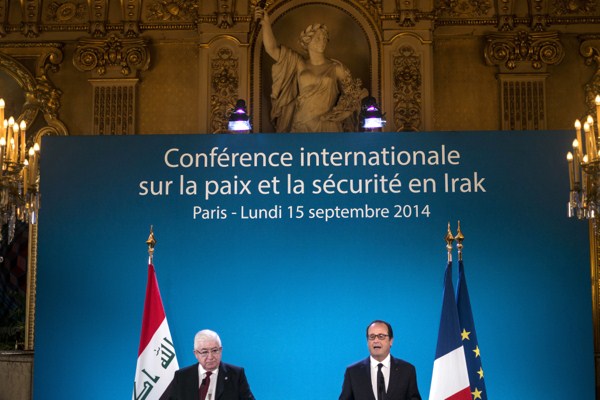France has suddenly and shockingly found itself in the middle of the Iraq maelstrom that it had managed up until now to avoid. With its armed forces engaged in the U.S.-led air campaign against the Islamic State group and a French citizen killed by the group’s sympathizers in retaliation, Paris’ policy in Iraq and the region beyond is being put to the test.
In a recent statement, as succinct as it was scathing, Abu Muhammad al-Adnani, the spokesman for the Islamic State group (also known as ISIS), called on the group’s recruits and supporters to target France and its citizens to punish Paris for its air strikes against jihadist positions in Iraq. Almost immediately, a breakaway faction of al-Qaida in the Islamic Maghreb, which pledged allegiance to the Islamic State group in mid-September and symbolically renamed itself the Soldiers of the Caliphate (Junud al-Khilafa), abducted and beheaded a French hiker, Herve Gourdel, in Algeria after the expiration of an ultimatum to France to cease its operations in Iraq. While controversial, France’s response at least had the merit of being composed and firm: In no case, President Francois Hollande stated, would Paris give in to militants’ blackmail or negotiate its policies with them.
By continuing its strikes alongside the United States against the Islamic State group, which now extend to Syria, where one-third of the country’s territory remains under jihadist control, France is making a remarkable comeback in Iraq after distancing itself from Baghdad a decade earlier. Of course, the circumstances have changed: Unlike the run-up to the Iraq War in 2003, marked by American unilateralism and driven by since discredited claims of Iraqi WMD development, the intervention of 2014 takes place in the context of a global coalition formed by Washington against an opponent that, this time, is not a regime but a cross-border terrorist movement with regional reach—and perhaps beyond. Setting aside the merits of France’s withdrawal from Iraqi affairs more than 10 years ago, or its relatively noisy re-engagement since last June, the reversal is clear: France is regaining a foothold in Iraq, and seemingly for the long term.

